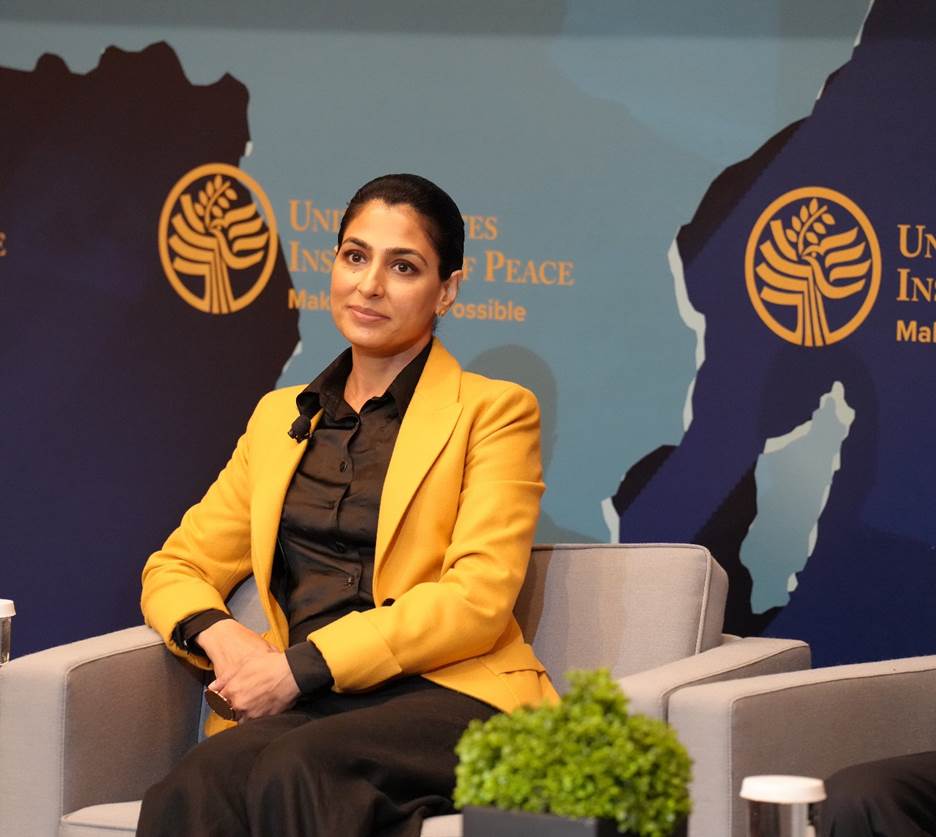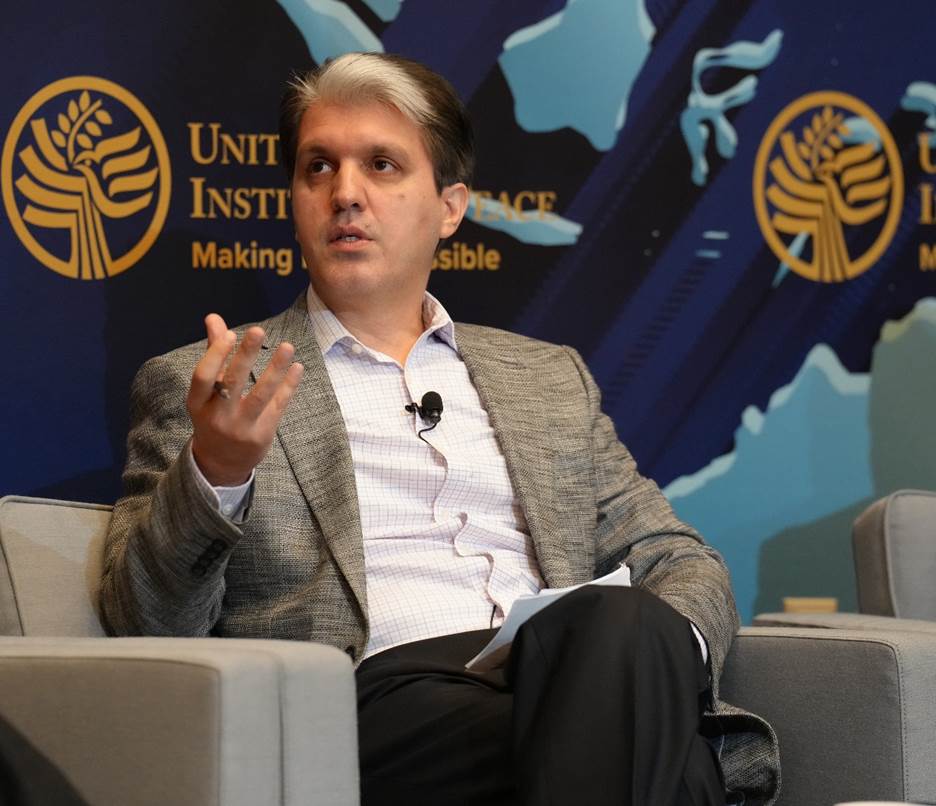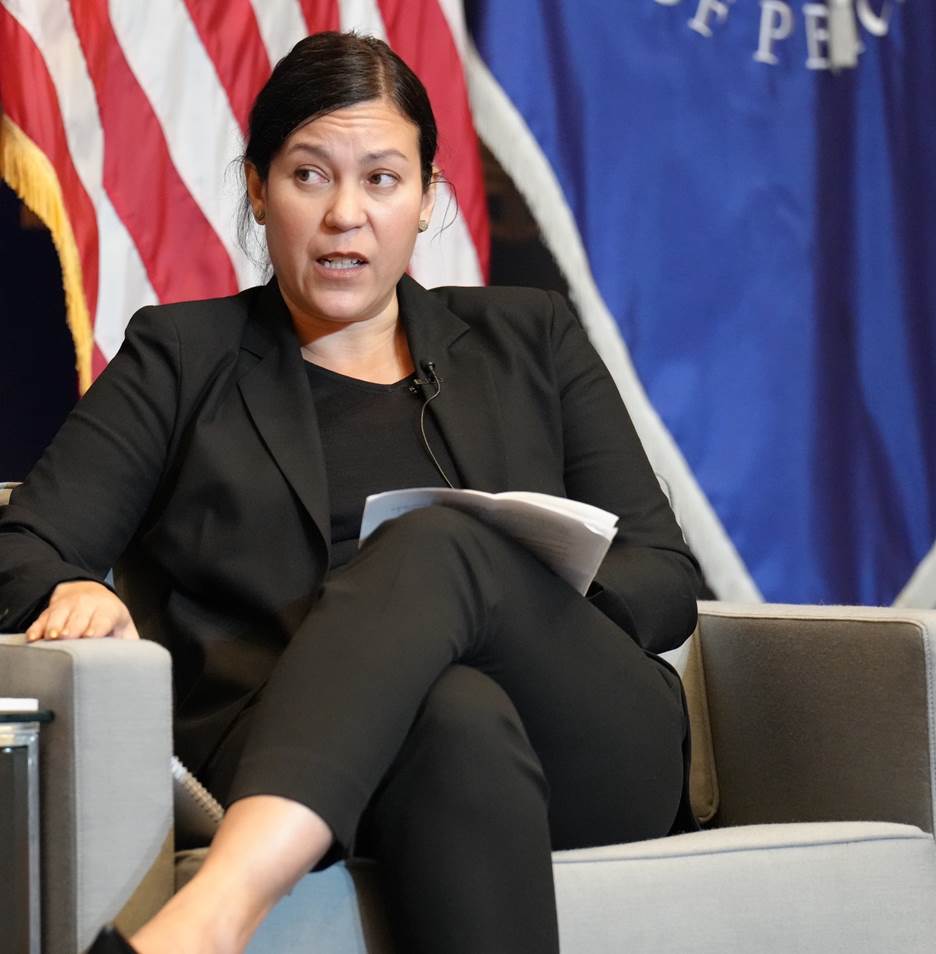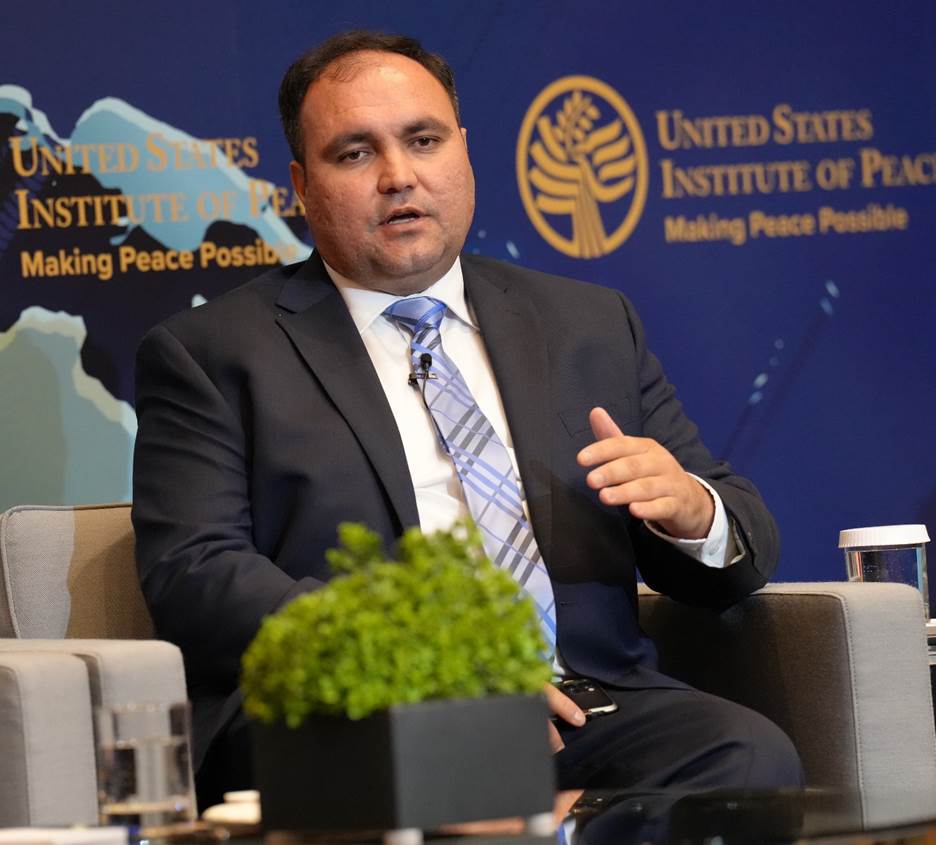
Ayesha Tanzeem

Barry Salaam

Gypsy Guillén Kaiser

Rahim Gul Sarwan
Independent Media Struggles under Taliban Rule
By Elaine Pasquini
Photos by Phil Pasquini

Washington: Since the US withdrawal from Afghanistan in August of 2021, Afghan media has suffered greatly. The free and open media that expressed diverse ideas and opinions with news compiled and reported by both men and women was one of the most important gains of the democratic constitution that Afghanistan enacted in 2004. But now the Taliban have pressured many media outlets to close. They have placed harsh restrictions on women’s appearance and participation in the media sector, along with heavily censoring what can be reported.
On January 19, the United States Institute of Peace and Voice of America co-hosted a discussion with journalists and media experts on the prospects of the return of a vibrant free press to Afghanistan under the Taliban government.
“The days when Afghan media used to be vibrant and journalists used to ask tough questions and hold the government accountable within the country seem to be over,” said Ayesha Tanzeem, director of the South and Central Asia Division and former bureau chief for Afghanistan and Pakistan at Voice of America. “All of the Afghan journalists I speak to are heavily self-censoring.”
According to Reporters Without Borders, prior to the Taliban takeover there were nearly 3,000 women journalists and now there are only about 500. “Female journalists have been literally wiped out from most of the country,” Tanzeem said.
When talking to Taliban soldiers on the ground she was told the clerics were the ones who “make the policy.” The military commanders are often neutral or more liberal than the clerics, but “it’s when the clerics take over that things go downhill,” she said.
If Muslim majority countries join hands they have “a lot of sway with the Taliban,” she argued. Noting the Taliban are deriving their strength from sharia, Tanzeem suggested that Muslim scholars in other Muslim-majority countries should debate the Taliban on their own terms and tell the Taliban their actions are “not in Islam.”
Since there is a severe humanitarian crisis in the country – 97 percent of the population is poor and many are facing acute hunger and food shortages – the Taliban need financial help from the international community, which provides them leverage.
Kate Bateman, a senior expert on Afghanistan at USIP who served as moderator, agreed that there is “some hope” that Muslim majority countries can bring pressure on the Taliban, especially with respect to girls’ education and employment.
Rahim Gul Sarwan, senior correspondent for Voice of America, pointed out that prior to the Taliban takeover, there were 579 media outlets in Afghanistan and since the US withdrawal that number has dwindled to 192. As a result, the subjects being covered officially have decreased sharply as well with anything being deemed “sensitive” not reported on at all.
The Taliban are controlling what is written or talked about. They have stopped the media from covering human rights issues and the subject of access to education for girls. “So now is the time for citizen journalists and social media to provide information to regular and independent media,” he said. “Citizen journalists presently have a key role to play, and risks are less for them.”
Twitter is the leading social media platform right now in Afghanistan, Sarwan said. And the Taliban and their spokesmen use Twitter to promote their own propaganda. They even pay monthly to have the highly coveted blue checkmark verification.
“What we are seeing is the absolute deterioration of the media environment in Afghanistan,” said Gypsy Guillén Kaiser, advocacy and communications director for the Committee to Protect Journalists. “The incredible resilience of Afghan journalists is something that has to be honored and supported.”
She noted there is global momentum to craft a feminist foreign policy and the US should join Canada, France, Germany, the Netherlands and other countries in a concerted effort to ensure that women journalists are protected.
The US is also a critical player in the Media Freedom Coalition which is a grouping of 51member countries from six continents that have pledged to support media freedom. “This coalition has an opportunity to cohesively address this issue and the US has a responsibility to seek that kind of alignment and cooperation across governments which can be very powerful,” Kaiser noted.
According to Barry Salaam, a senior program officer for Afghanistan at USIP, the Taliban’s ideologies and policies have not changed much since the1990s. “They still explicitly reject modern notions like human rights and democracy,” he pointed out. “They oppose diversity and political inclusion. They still pursue their harsh discriminatory policies toward women.”
But in other ways they have undergone substantial change, he said. Specifically, they have gained sophisticated skills in communicating, in negotiating and in waging information battles. “Over the past 25 years they have learned that media plays a substantial role in how you position yourself…so they have engaged tremendously with social media,” he added. “As a result, I believe that this time around…they have decided to bring the media under their tight control and use them and force them to promote their image and strengthen their powers.”
To do this, the Taliban are creating an atmosphere of fear among journalists, Salaam continued. Media support organizations have reported over the past one and a half years there have been more than 2,500 cases of detentions, harassments, tortures, arrests, humiliations, and other types of violence.
“We do not have much leverage left over the Taliban, but we can still engage with those pragmatic Taliban who think that returning to the old Taliban is not in their favor and it would deny them the engagement and ultimate recognition they need to survive and sustain themselves,” Salaam stated. “There are a lot of avenues the United States can still support and through these efforts reach the bigger goal of forming a national dialogue on the future of Afghanistan.”
(Elaine Pasquini is a freelance journalist. Her reports appear in the Washington Report on Middle East Affairs and Nuze.Ink.)

